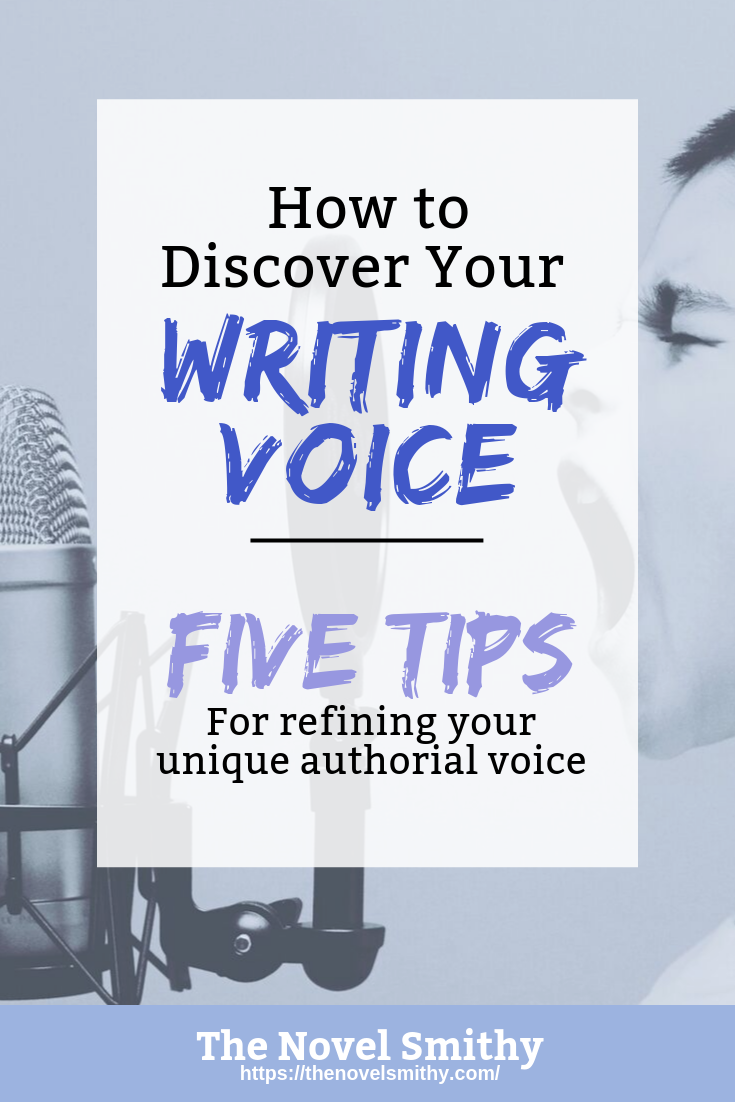How to Discover Your Writing Voice
Every author has a unique writing voice…
…or at least they should. You see, a writer’s voice sets their work apart from others, and that makes it a powerful tool in any storyteller’s arsenal. While your story may be perfect in terms of execution, your unique writing voice is what really brings life to your novel.
Unfortunately, it’s not uncommon to read books indistinguishable from others in their genre, despite being written by completely different authors. Far too many writers censor their unique writing voice because they’re unsure what their writing voice even is. However, your writing voice doesn’t have to be a mystery—you just need to know where to look.
What Is a Writer’s Voice?
Contents
 If I had to make a guess, part of why so many writers struggle to discover their writing voice is because they aren’t even sure what “writing voice” means.
If I had to make a guess, part of why so many writers struggle to discover their writing voice is because they aren’t even sure what “writing voice” means.
A writer’s voice comprises many things, with the most obvious being their prose. For instance, Hemingway has a minimalistic, strict style, and this plays a big role in defining his harsh and practical writing voice. On the other hand, Jane Austen is wordy, relishing in complex descriptions, inner dialog, and lavender prose.
While both of these famous writers are a product of the conventions of their time, their writing styles still play a large part in defining how we perceive their stories and their personal writing voice.
However, that isn’t all there is to a writer’s voice.
The tone of your writing can have a huge influence on your voice. Is your tone melancholic or uplifting, aggressive or anxious? Similar to tone is the rhythm of your writing. When you read the work of Edgar Allan Poe aloud, it has a very different flow and pacing than that of Sir Arthur Conan Doyle—or of anyone for that matter.
Above all, your authorial voice is defined by your unique perspective. This is why two writers can both retell a famous story like Red Riding Hood, yet end up with two novels as wildly different as Scarlet and Princess of the Silver Woods.
Ultimately, your writing voice is the expression of your personal creativity through words.
Your Writing Voice is Innate
I know I’ll disappoint some by saying this, but—no one can tell you what your writing voice is. Just like each of us is a unique individual, so too are our voices.
This is why its so disappointing for me as an editor to watch talented writers censor their stories to fit a predetermined voice. These writers force themselves into a box, trying to mimic whatever is popular in their genre while forgetting that their writing is personal to them.
While it’s important to master the technical aspects of storytelling, the best writers are the trailblazers who hold to their unique voice while simultaneously showing off their technical skill. By trying to mold your writing to fit someone else’s voice, you’re being dishonest to yourself and your novel.
However, that’s clearly not the end of the story.
While your writing voice is innate, that doesn’t mean you can’t discover and refine it over time. Fortunately, there are five simple things you can do to discover your writing voice and make it even stronger, and we’re going to explore them below.
5 Ways to Refine Your Writing Voice
Hone Your Creativity:
Writing is a game of practice, and there’s nothing better for your authorial voice than writing regularly and often.
You can do this in a variety of ways, whether you pen short stories and fanfiction on the side, run an author blog where you post in-progress chapters of your novels, or simply free write whenever you get the chance. The goal here is to experiment—in the process, you’ll slowly get a better sense for your natural writing style.
Alongside this, make a point to read just as much if not more than you write. While the reading versus writing debate will always be a bit of a balancing act, by making time to read you give yourself a great creative outlet. Like I mentioned earlier, you shouldn’t be trying to emulate a specific writer, but you can always draw inspiration from them!
Write Quickly:
Part of why so many writers struggle with their writing voice is because their inner editor is wreaking havoc. Perhaps the best way to silence this inner editor is by simply writing too fast for them to keep up.
“The first draft of a book—even a long one—should take no more than three months, the length of a season.” — Stephen King
This is most important when writing your first draft, since this draft is all about getting your story on the page regardless of what form it takes. You shouldn’t worry about fancy prose or stunning dialog here. Instead, when writing under a tight deadline you have to let yourself write stream of consciousness, meaning your natural voice takes hold.
While it’s almost guaranteed you won’t be happy with your first draft regardless of how quickly you write it, this method makes it much more difficult to listen to your inner editor or worry about emulating other writers.
Instead, you can focus on finishing your story first and foremost.
Once your draft is complete, you’ll have plenty of time to edit, polish, and refine your work until you’re happy with its execution. However, you’ll always have that foundation of your natural writing style to build from.
Know Your Reader:
Of course, while you shouldn’t try to mimic others in your genre, it’s still valuable to understand what your reader expects.
For instance, more flowery, descriptive prose is common in romance novels. On the other hand, sharper, shorter sentences make sense in the thriller and action genres. If you’re trying to refine and strengthen your writing voice, it may be worth experimenting with some of these conventions, while still honoring your natural style. By blending the two, you can end up with something both comfortable for your readers and unique to you.
Read Your Draft Aloud:
Like I mentioned earlier in the article, a big part of your writing voice is its rhythm.
Writing is like music, and each author has their own distinct patterns and flow. This is part of what makes different authors’ work distinct; just like Bach and Mozart have their own unique sounds, so do Rowling and Tolkien’s.
So, how does your writing sound when read aloud? What do you want it to sound like?
This is another excellent editing trick, and one I use for every article, book, and story I write. By simply reading your work as you go, you’ll not only hear how it flows and moves, but keep your brain active while editing so you’re less likely to miss any mistakes. It’s a win-win!
Writing is like music, and each author has their own unique rhythm. #amwriting Share on X
Trust Yourself:
Finally, sometimes you just need to trust yourself.
No matter how hard you try to shut out your inner editor and embrace your natural writing style, there will always be a small voice nagging at you to be better. On the one hand, this voice can push you to improve and grow as a writer, but on the other it can force you to censor your unique writing voice to fit an accepted mold.
At the end of the day, you have to trust the quality of your writing.
If you’ve done everything you can to make your story’s prose, structure, and characters strong, then it’s time to call your novel complete. Even if it doesn’t sound exactly like you wanted or your voice isn’t quite as polished as you’d hoped, sending it out into the world for feedback is just as important as writing or reading.
Your writing voice will grow and evolve as you do, and you can rest assured that your next novel will be even better than the last!
6 Questions to Guide Your Search
Of course, if you truly have no idea what your writing voice should sound like, you’ll need something to jumpstart the process.
Here are some questions you can use to help yourself along:
- What’s my story’s personality?
- How should my story sound when read aloud?
- What’s my unique perspective on the world and on my stories?
- What tone captures the feeling I get when I imagine my story?
- Are there any other writers that have a similar tone that I could use for inspiration?
- What about my writing style am I most proud of?
Ultimately, neither I nor any other author can tell you what your writing voice is. Still, I hope the advice above helps you on your quest to discover your unique writing voice—and that (once you’ve found it) you take the time to refine it into something you’re truly proud of.
While it may take a long process of self-reflection to find your writing voice, remember that it’s innate to you. You already have it tucked inside you—now you just need to discover it. 🙂


Great article. Voice is really one of the thornyest matters in storytelling, sice it’s true, nobody can tell you what is your voice and so direct you towards it.
You gave some very good advice to try and fine out what our voice sounds, though.
Thanks for sharing.
Thanks for reading Sarah! 🙂
You’re definitely right; voice is a complex part of storytelling, and what makes it even more interesting is how much it can change and evolve over time. Even if we discover it today, it might have taken on a different form tomorrow!